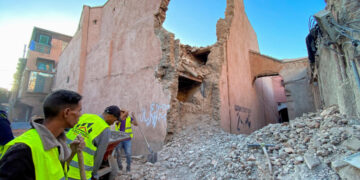Traffic Terror
Casinos have been a staple of entertainment for decades, offering a unique blend of chance, excitement, and social interaction. From the bright lights of Las Vegas to the sophisticated ambiance of Monte Carlo, casinos have become a major draw for tourists and locals alike. However, behind the glamour and glitz lies a complex web of issues that can make visiting these establishments a traffic terror.
The Rise of Casinos
In the mid-20th century, casinos began to proliferate across the globe, with Las Vegas emerging as the mecca for gamblers and crossyroadcasino.net entertainment seekers. The Strip’s iconic hotels and casinos, such as the Bellagio and Caesars Palace, became synonymous with excess and indulgence. As the industry grew, so did concerns about its social impact.
One of the primary criticisms of casinos is their ability to prey on vulnerable individuals, often exploiting those who are struggling financially or emotionally. The high-stakes games, free-flowing liquor, and alluring amenities create an environment that can be difficult to resist for some visitors. While casinos market themselves as a form of entertainment, they also operate as businesses, with the primary goal of generating revenue.
The Dark Side of Gaming
Problem gaming, also known as compulsive or pathological gambling disorder, is a serious issue affecting millions worldwide. According to the National Council on Problem Gambling (NCPG), approximately 1% of adults in the United States suffer from severe problem gaming. This can lead to financial ruin, strained relationships, and even suicidal tendencies.
Casinos have been accused of perpetuating problem gaming by creating an environment that encourages reckless behavior. The constant availability of credit and cash advances can further exacerbate this issue. In an effort to combat problem gaming, many casinos now offer self-exclusion programs and counseling services. However, critics argue that these measures are often insufficient or ineffective.
The Human Cost
Beyond the individual struggles with problem gaming lies a broader social impact. Casinos have been linked to increased crime rates, including theft, assault, and even murder. The easy access to cash and valuables can create an environment where individuals feel emboldened to engage in illicit activities. Moreover, the presence of casinos has been shown to contribute to decreased property values, reduced economic growth, and strained community relationships.
The Economic Burden
While casinos generate significant revenue for local economies, they also place a substantial burden on taxpayers. Governments often provide lucrative tax breaks and subsidies to attract large casino operators. However, these incentives can lead to a decrease in government revenue from other sources, such as property taxes or sales taxes.
Furthermore, the influx of visitors attracted by casinos can put pressure on local infrastructure, including roads, transportation systems, and emergency services. This strain can result in increased costs for taxpayers and potentially compromise public safety.
The Environmental Impact
Casinos often have a significant environmental footprint, from energy consumption to waste generation. The construction of large casino complexes requires vast resources and can lead to habitat destruction and pollution. Moreover, the high-energy demands of casinos can contribute to greenhouse gas emissions and climate change.
In an effort to mitigate these effects, some casinos have begun to incorporate sustainable practices into their operations. For example, the Bellagio has implemented a comprehensive recycling program and reduced its energy consumption through LED lighting and solar panels.
The Changing Landscape
As public awareness of the issues surrounding casinos grows, so do efforts to regulate and reform the industry. Several states in the United States have implemented measures aimed at reducing problem gaming, such as mandatory training for staff and increased funding for counseling services.
In recent years, online gaming has also become increasingly popular, offering a new dimension to the casino experience. Online platforms can provide greater accessibility and convenience but also raise concerns about age verification, responsible gaming practices, and tax evasion.
Conclusion
Casinos have long been a staple of entertainment, attracting millions with their bright lights, exciting games, and luxurious amenities. However, behind the glamour lies a complex web of issues, from problem gaming to environmental degradation. As the industry continues to evolve, it is essential that we address these concerns and strive for greater transparency and accountability.
Ultimately, the responsibility falls on both casino operators and governments to prioritize responsible gaming practices, protect vulnerable individuals, and ensure that these establishments contribute positively to local communities rather than causing harm. By acknowledging the dark side of casinos and working towards a more sustainable and equitable model, we can transform "traffic terror" into a beacon of entertainment and enjoyment for all.
style=”display:none;”>





















































